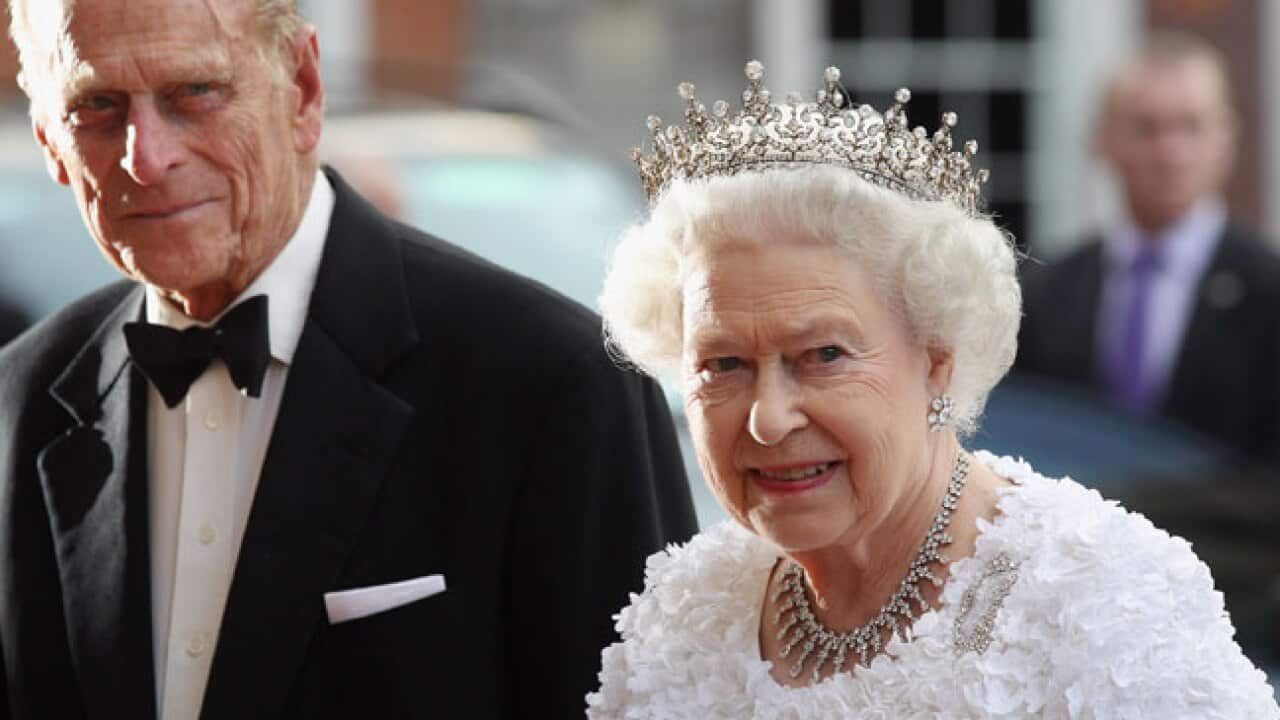Queen Elizabeth II expressed her "deep sympathy" Wednesday for the victims of Britain and Ireland's turbulent past after visiting the scene of a massacre on her groundbreaking state visit.
The British monarch said it was "impossible to ignore the weight of history", while those who lost their lives could never be forgotten, after paying a landmark trip to Dublin's Croke Park stadium, where British forces killed 14 people in 1920 as Ireland's independence struggle raged.
Such words and visits would have been unthinkable until recently. Peace in Northern Ireland has created the conditions for the first visit by a British sovereign to the Republic since it won independence from London in 1922.
"It is a sad and regrettable reality that through history our islands have experienced more than their fair share of heartache, turbulence and loss," the Queen told a state banquet at Dublin Castle, the former seat of British colonial power.
"These events have touched us all, many of us personally, and are a painful legacy. We can never forget those who have died or been injured, and their families.
"To all those who have suffered as a consequence of our troubled past I extend my sincere thoughts and deep sympathy."
She added: "With the benefit of historical hindsight we can all see things which we would wish had been done differently or not at all."
As the queen is a non-political figure with little de facto power over her governments, it is not properly within her role to deliver apologies.
But her remarks were effectively as close as she could go and will likely be interpreted as a giant step towards healing old divisions -- all the more so for being delivered in Dublin after a visiting some of Ireland's most sensitive sites.
Irish President Mary McAleese said the four-day visit was "a culmination of the success of the peace process", building on the 1998 Northern Irish peace accords.
"It is an acknowledgement that while we cannot change the past, we have chosen to change the future," she told her guests.
The state dinner came after visiting Croke Park -- a bastion of Irish freedom from the crown.
The "Bloody Sunday" of November 21, 1920 saw 14 people killed there by British auxiliary forces when they fired on the crowd at a Gaelic football game in response to the murder of 14 undercover British agents.
"In our shared history there have been many tragic events, which have inflicted hurt on us all," Gaelic Athletic Association president Christy Cooney told the queen.
But advocating reconciliation, he added: "Your presence does honour to our association" in another watershed moment.
In a jovial exchange, Cooney presented the queen's famously peppery husband Prince Philip with a hurling stick -- then told him he could not use it inside.
Earlier Wednesday in another highly-charged visit, Queen Elizabeth laid a wreath at the Irish National War Memorial Garden to honour the 49,400 Irish soldiers killed fighting for Britain in World War I.
Those who served in the 1914-1918 conflict were ignored for decades due to deep unease in Ireland over them serving in British uniform during the independence struggle.
They have only begun to be remembered and recognised in the Republic in recent years.
Wednesday's itinerary began on a light note with a trip to the Guinness brewery, the country's top tourist destination.
Master brewer Fergal Murray poured the Queen and her husband a perfect pint of the world-famous stout. Neither had a sup but Prince Philip was "definitely tempted", Murray said, the 89-year-old lingering at the bar as his wife moved on.
Ireland has mounted the biggest security operation in its history with 10,000 police and troops guarding the queen, with the public largely kept at a distance due to the threat from dissident republicans violently opposed to the peace process.
Irish Prime Minister Enda Kenny said the reaction to the queen's visit had been "exceptionally positive", while newspapers lambasted the small number of "yobs" who had attacked officers manning the barricades.
A group of tracksuited republican extremists numbering fewer than 100 had been roaming between the visit sites all day but were prevented from getting anywhere near the royal couple. Police said five arrests had been made.

